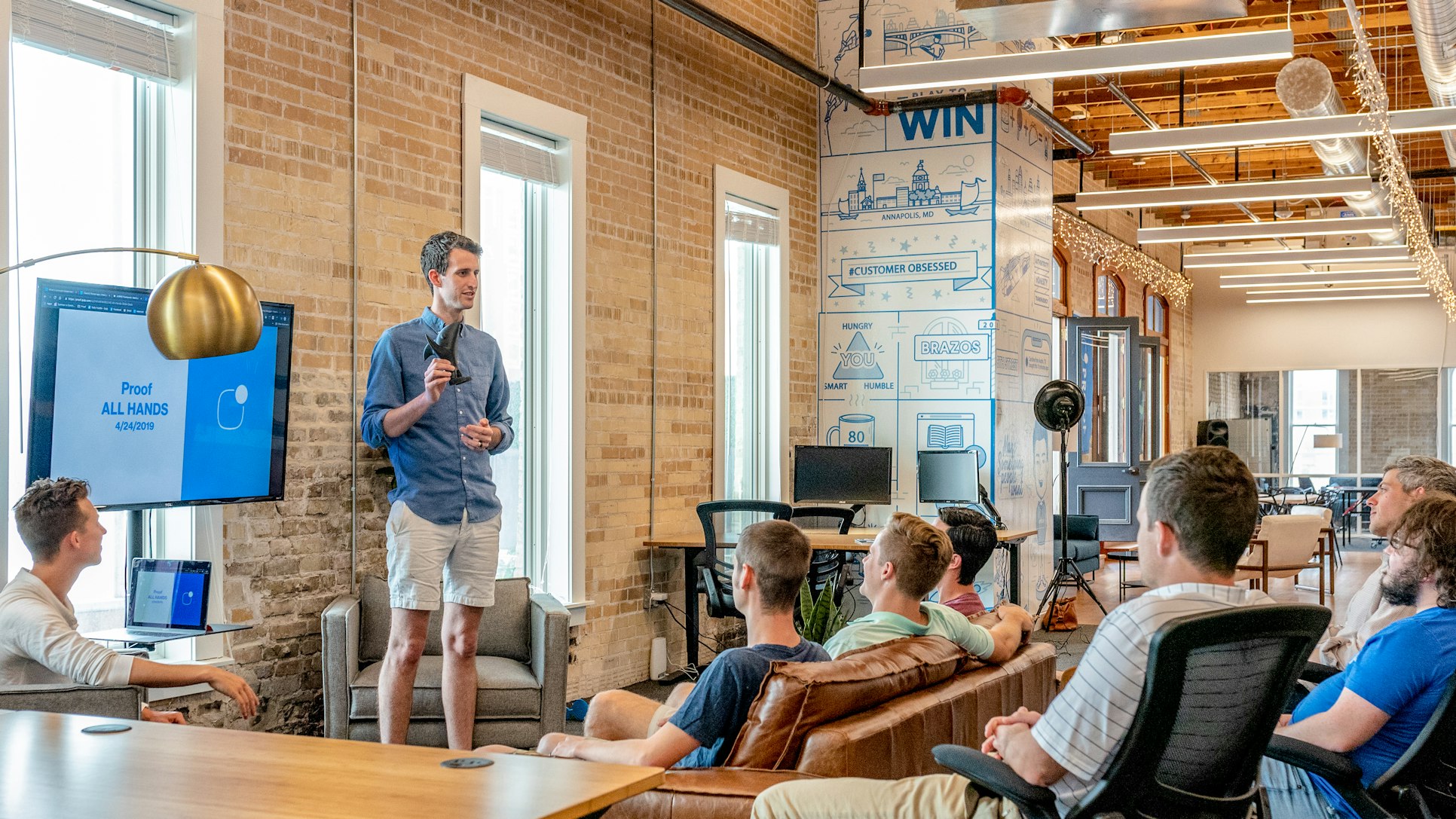- October 7, 2025
- Blog & Newsletters
- Comments : 0
The SaaS Revolution: How Central India is Building the Next Generation of Global Tech
Introduction: The Unseen Tech Tsunami in India’s Heartland
Beyond the bustling metropolises of Bengaluru and Delhi-NCR, a quiet but powerful revolution is reshaping India’s technology landscape. This is the rise of Software-as-a-Service (SaaS) from the nation’s Tier-2 cities, and Central India is emerging as a formidable epicenter of this transformation. While the narrative has long been dominated by metro hubs, a strategic shift is underway, driven by talent, ambition, and economics. For entrepreneurs in Madhya Pradesh, this isn’t just a trend; it’s the single greatest opportunity to build globally competitive companies from the ground up, proving that world-class innovation is no longer defined by a zip code. This movement is about more than just software; it’s about democratizing the startup dream.

What’s Happening: The Data-Driven Shift to the Heartland
The migration of entrepreneurial energy to Tier-2 cities is not based on anecdotes but on hard data. According to recent reports, more than 45% of all startups recognized by the Department for Promotion of Industry and Internal Trade (DPIIT) are now based in Tier-2 and Tier-3 cities. This seismic shift is fueled by a confluence of factors accelerated by the post-pandemic digital boom. The job share for startups in Tier-2 cities has skyrocketed, surging from just 9% to an incredible 31% in the last year alone, with Indore being cited as a preferred location for hiring. This indicates a maturing ecosystem where companies are not just being founded but are actively scaling and creating employment.
Investors, once hesitant to look beyond traditional hubs, are now following the talent and opportunity. Brijesh Damodaran Nair of Auxano Capital noted that investors are showing “greater confidence in India-centric SaaS models as they see strong growth in tier II and III cities.” This confidence is reflected in the rising deal sizes and the increasing number of venture capitalists actively scouting for opportunities in cities like Indore, Bhopal, and Jabalpur. The narrative is clear: the next wave of SaaS unicorns may very well be coded not in a sprawling metro campus, but in the focused, agile environments of Central India.
Why It Matters: A New Paradigm for Founders, Investors, and Mentors
This geographic diversification of the tech industry has profound implications for the entire startup ecosystem. For founders, the advantages are immediate and tangible. Operating costs in cities like Indore can be 30-40% lower than in Bengaluru or Mumbai. This translates to a longer runway, reduced burn rate, and the ability to focus capital on product development and market acquisition rather than just overheads. It allows for a more sustainable, product-led growth trajectory, a crucial factor in today’s cautious funding environment.
For investors, Central India represents an unsaturated market with high potential. They gain access to a pipeline of startups with strong unit economics and loyal, localized talent pools. For mentors and ecosystem enablers like TiE Indore, this shift is a validation of our mission. It allows us to nurture businesses that are deeply rooted in the local community yet possess global ambitions. By providing guidance on scaling, governance, and funding, we can help these emerging SaaS startups navigate their growth journey and avoid common pitfalls, ensuring their long-term success and contribution to the regional economy.
“Growth is no longer confined to major metropolitan areas; we are witnessing a robust expansion into Tier-2 cities, signalling a more balanced and inclusive model of growth.”
— V Suresh, CEO, foundit
How Startups Can Respond: An Actionable Framework for SaaS Success
For aspiring entrepreneurs in Madhya Pradesh, the time to act is now. Building a successful SaaS company from a Tier-2 city requires a strategic approach that leverages local strengths while aiming for a global market. First, focus on solving niche problems for global audiences. The beauty of SaaS is its borderless nature. Instead of competing in crowded domestic markets, identify specific industry verticals or business functions that are underserved by existing solutions. Second, build a strong talent pipeline by collaborating with local institutions. Engage with engineering and management students from IIT Indore, IIM Indore, and universities in Bhopal and Gwalior for internships and placements. This not only secures skilled resources but also helps curb the brain drain to metro cities.
Finally, leverage the power of the local ecosystem. Participate in events like TiE Con MP, join mentorship programs, and connect with angel investors who understand the regional landscape. Building a strong local network is just as important as building a great product. The government’s focus on digital infrastructure and supportive policies further lowers the barrier to entry, making it easier than ever to launch and scale a tech venture from the heart of India.
The Local Lens: Central India’s SaaS Ecosystem Takes Shape
The theoretical advantages of building in a Tier-2 city are already being realized across Madhya Pradesh. Indore, with its well-developed infrastructure like the MPSEDC IT Park and Crystal IT Park, is home to a growing number of tech companies, including established players like CIS and promising startups. These parks provide the essential plug-and-play environment that allows founders to focus on their business. The city’s connectivity and cosmopolitan culture make it an attractive base for talent that has chosen to return from the metros—a phenomenon known as reverse migration.
Bhopal is rapidly catching up, with its own burgeoning IT sector and a focus on skilling and development supported by government initiatives. Institutions like IIM Indore and IIT Indore are not just academic centers; they are crucibles of innovation, fostering entrepreneurship through incubation cells and research parks. The success of local tech leaders like Workie Office Spaces and Emorphis Health demonstrates that global-scale businesses can be built and scaled from Central India. This local momentum creates a virtuous cycle: success attracts more talent, which in turn attracts more investment, strengthening the entire ecosystem. For a founder, this means access to a supportive community that understands their journey. “अब वक्त हमारा है” (Ab waqt hamara hai – Now is our time), a sentiment echoing through the co-working spaces of Indore.
The Tier-2 Advantage: A Comparative Framework
To truly understand the strategic benefits, here is a structured breakdown of why building a SaaS startup in a city like Indore or Bhopal offers a competitive edge over traditional metro hubs.
| Factor | Metro Hubs (e.g., Bengaluru, Mumbai) | Central India Hubs (e.g., Indore, Bhopal) |
|---|---|---|
| Operational Cost | High (Office rent, salaries, utilities are 30-40% higher) | Lower (Significant cost savings extend financial runway) |
| Talent Pool | Large but highly competitive and expensive; high attrition rates | Growing & Loyal (Access to fresh talent from local universities; lower attrition) |
| Market Saturation | Extremely high; intense competition for talent, funding, and customers | Low (Opportunity to become a market leader and shape the local ecosystem) |
| Investor Access | High concentration of VCs and angel networks | Growing (Local and national investors increasingly active; less competition for attention) |
| Quality of Life | High cost of living, traffic congestion, long commutes | Better (Lower cost of living, less traffic, better work-life balance) |
| Ecosystem Support | Mature and dense, but can be impersonal and hard to navigate | Close-Knit & Accessible (Organizations like TiE Indore provide direct, personalized mentorship) |
Takeaways: A TiE Mentoring Perspective
From a TiE mentoring standpoint, the rise of SaaS in Central India is a call to action. Our role is to equip founders with the strategic tools to capitalize on this wave. First, we emphasize building for the world from day one. A SaaS product built in Indore should be benchmarked against the best in San Francisco, not just the best in India. This requires a global mindset in product design, marketing, and customer support. Second, we guide startups on building scalable, capital-efficient businesses. The cost advantages of being in a Tier-2 city should be channeled into sustainable growth, not just survival. This means focusing on profitability and strong unit economics early on.
Finally, we stress the importance of governance and mentorship. As startups scale, having experienced mentors and a strong board can be the difference between success and failure. TiE Indore provides this crucial support system, connecting founders with seasoned entrepreneurs and investors who have walked the path before. The opportunity is immense, but it requires discipline, vision, and the right guidance to fully realize.

Conclusion: Central India’s Moment on the Global Stage
The rise of SaaS startups in Central India is more than an economic trend; it’s a fundamental shift in India’s entrepreneurial narrative. It proves that innovation is not the monopoly of a few megacities. With digital infrastructure becoming ubiquitous and talent more distributed, the next great global SaaS company could very well emerge from Indore, Bhopal, or Jabalpur. This movement empowers local communities, creates high-value jobs, and builds a more resilient and distributed national economy. For the entrepreneurs of Madhya Pradesh, the message is clear: the barriers have fallen, the tools are accessible, and the world is waiting. It’s time to build. It’s time to scale. It’s time to lead the charge from the heart of India.




